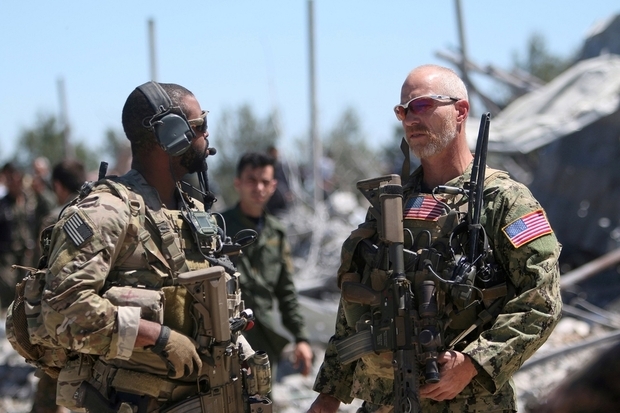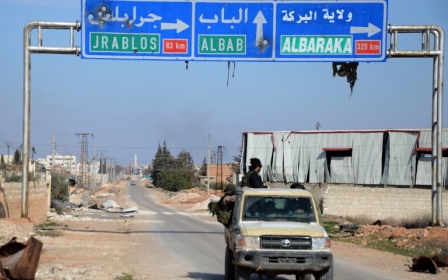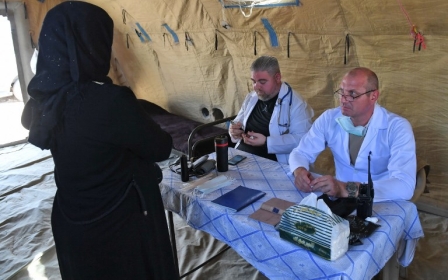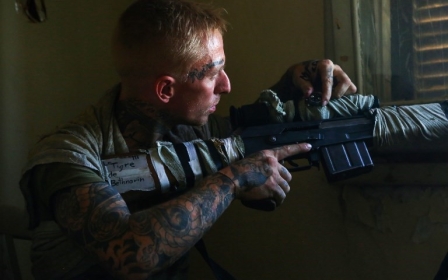Turkey asks US to remove posts in Syria aimed at stopping clashes with YPG

Turkey on Friday asked the US to scrap observation posts in northern Syria aimed at helping prevent clashes between Turkish forces and a Kurdish militia backed by Washington.
Defence Minister Hulusi Akar made the demand during a meeting with James Jeffrey, the US Special Envoy to Syria, his ministry said in a statement.
US Defense Secretary Jim Mattis had said that Washington wanted the observation posts to help minimise tensions between Turkish forces and Washington's Kurdish allies, including the Syrian Kurdish YPG militia which Ankara regards as a "terrorist offshoot" of the outlawed Kurdistan Workers' Party (PKK).
He asked Jeffrey to stop the American collaboration with the YPG.
Akar's request comes as Turkey continues to grapple with its differing interests in the north of Syria.
Ankara is holding separate talks on Syria with both the US and Russian governments amid concerns that it is losing diplomatic leverage as the security situation deteriorates in the opposition-held province of Idlib.
On Tuesday, Jeffrey suggested it was time to "pull the plug on the Astana process”, the three-way negotiations between Turkey, Russia and Iran, the latter two of whom are allied with Syrian President Bashar al-Assad.
The comments created another point of disagreement between the two NATO allies, with Turkish Foreign Minister Mevlut Cavusoglu commenting on Wednesday that Jeffrey's remarks were "unfortunate".
Turkey, which has backed Syrian opposition groups since the start of the country's civil war, argues that the Astana process, which began in January 2017, led to the ceasefire deal in September that prevented an all-out Syrian government assault on Idlib, and averted a humanitarian crisis.
"If the ceasefire in Syria is still preserved, even despite the violations, if today we can still talk about a political process if we can discuss the constitutional committee… they have been achieved thanks to the Astana process and Sochi [talks],” Cavusoglu said.
The Idlib deal agreed after 10 days of talks in September between Turkish President Recep Tayyip Erdogan and Russian counterpart Vladimir Putin, created a 15-to-20km-long demilitarised buffer zone around the province.
According to the deal, “radical-minded” groups, including HTS, would withdraw from the zone and heavy weapons held by Syrian rebels in Idlib would be handed over by 20 October. Russian and Turkish forces would patrol the buffer zone, the agreement stated.
But since the 20 October deadline passed, the Russians have been complaining that militant groups are still in the demilitarised zone.
Syria's long-oppressed Kurdish minority has established a semi-autonomous region in the north of the country, which has been wracked by conflict since 2011.
Turkey refuses to recognise the territory on its border, fearing it will stoke the separatist ambitions of Kurds in its own country.
Ankara has carried out two operations against Kurdish forces since 2016, the last against the border enclave of Afrin, which it seized in March and is now controlled by pro-Turkish Syrian rebels.
Middle East Eye propose une couverture et une analyse indépendantes et incomparables du Moyen-Orient, de l’Afrique du Nord et d’autres régions du monde. Pour en savoir plus sur la reprise de ce contenu et les frais qui s’appliquent, veuillez remplir ce formulaire [en anglais]. Pour en savoir plus sur MEE, cliquez ici [en anglais].




